- Home
- / CL Answers
- / Do supplements help with Parkinson’s disease treatment or prevention?
www.consumerlab.com/answers/supplements-for-parkinsons-disease/parkinsons-disease-supplements/
Save to favorites
This feature is restricted to active members.
Join now to save favorites and get all member benefits, including over 1,400 reviews.
Join NowAlready a member? Sign in here.

Our Members Asked:
Do supplements help with Parkinson’s disease treatment or prevention?
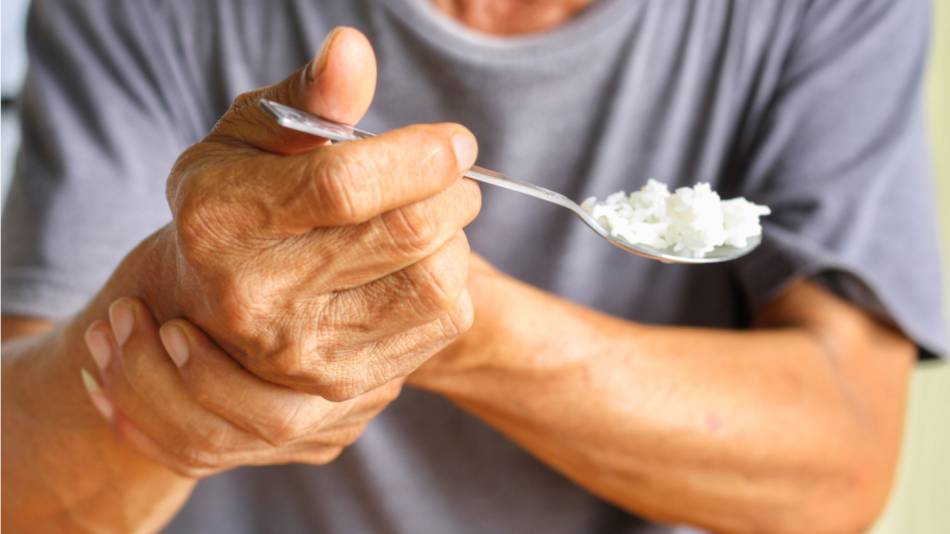
Answer:
There is no convincing evidence that dietary supplements help delay progression or improve motor impairment in people with Parkinson's disease unless they are deficient in nutrients, although some may help with non-motor symptoms, such as sleep disturbance, depression, and psychoses.
Sign in to learn what has been shown with vitamins D and E, niacin, vitamins B-6 and B-12, coenzyme Q10 (CoQ10), melatonin, creatine, S-adenosyl-L-methionine (SAMe), N-acetyl-cysteine (NAC), valerian, magnesium, curcumin, cannabidiol (CBD), mannitol, PEA (palmitoylethanolamide), and CDP-choline (citicoline), as well as with coffee and the Mediterranean and MIND diets. Also, learn about Mucuna pruriens as a natural source of levodopa (L-dopa) and if labels on supplements are accurate.
In addition the results of its expert testing, ConsumerLab uses only high-quality, evidence based, information sources. These sources include peer-reviewed studies and information from agencies such as the FDA and USDA, and the National Academy of Medicine. On evolving topics, studies from pre-print journals may be sourced. All of our content is reviewed by medical doctors and doctoral-level experts in pharmacology, toxicology, and chemistry. We continually update and medically review our information to keep our content trustworthy, accurate, and reliable. The following sources are referenced in this article:
- Airoldi, Metabolism 1978
- Bega, J Mov Disord 2014
- Cilia, Neurology 2017
- Cohen, JAMA Neurol 2022
- Daidone, PLoS One 2012
- Hinz, Clin Pharmacol 2014
- Linetsky, Front Neurol 2022
- Metcalfe-Roach, Mov Disord 2021
- Ross, JAMA 2000
- Shaltiel-Karyo, J Biol Chem 2013
- retracted
Join today to unlock all member benefits including full access to all CL Answers and over 1,400 reviews.
Join NowAlready a member? Sign In Here.
Join now at www.consumerlab.com/join/
 8 Comments
8 Comments
Join the conversation
Submit your comment
This feature is restricted to active members.
Join now to add comments and get all member benefits, including over 1,400 reviews.
Join NowAlready a member? Sign in here.

Agree to Comment Terms
Please abide by the following:
- If you make a statement of fact, such as whether a type of treatment does or does not work, state your basis -- such as personal experience or a published study.
- If you make a positive or negative comment about a product, note whether or not you have a financial interest in the product or in a competing product.
- Please be respectful in your tone.
- Please do not submit any type of HTML markup or scripting as it will not be accepted, nor will posts that exceed 2,500 characters.
For your privacy, only your first name (from your account) followed by a random number will appear with your comment. Your last name and email address will not be displayed.
Your comment has been submitted
We will review your comment before it is posted.

Related Reviews (11)
Latest Research Updates (Clinical Updates)
Supplements for Parkinson’s?
November 07, 2024
DopaBoost
August 01, 2024
B-6 Depleted by Parkinson’s Drug?
August 19, 2022
Can vitamin B-6 levels in the body be depleted by carbidopa, a drug taken in combination with levodopa for Parkinson's disease? Find out what evidence suggests in our updated CL Answer about supplements for Parkinson's disease.
Caution With Mucuna for Parkinson’s?
August 09, 2022
Mucuna pruriens is a natural source of levodopa (a drug for treating Parkinson’s disease). A recent study in a major journal suggested that labels for Mucuna pruriens supplements were highly misleading – however, we analyzed their data and came to a different conclusion. Learn more in our updated CL Answer about Supplements for Parkinson's Disease.
Related CL Answers (3)

Related Content
Join over 95,000 Members
Find the best products with instant access to our latest tests & reviews of over 1,400 health products.
Save money by finding high-quality products at lower cost.
Stay safe with the latest clinical findings, warnings, and expert answers.
Suggest products to test.
Stay informed with our e-newsletter.
Ratings of ConsumerLab

The "Updated" date indicates when new information was most recently added to this article. In the full article, the newest information is highlighted in yellow.
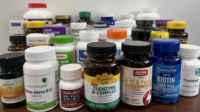
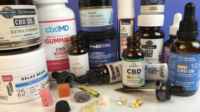
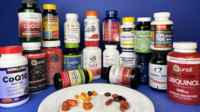
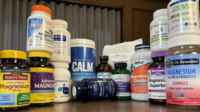
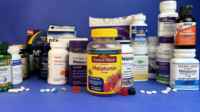
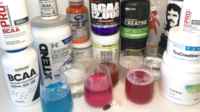
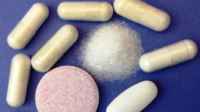

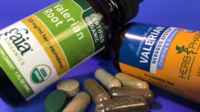
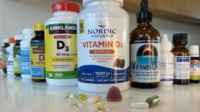
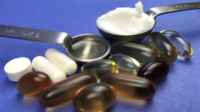
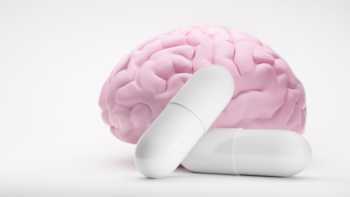

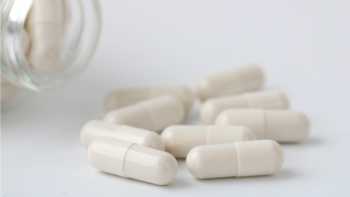





Helen21009
November 01, 2024There are studies favoring the use of citicoline and palmitoylethanolamide for symptom improvement and reduced use of Parkinson's drugs. These two substances have a very broad range of uses, but they rarely get highlighted. Clearly, they are not marketed well enough, PEA is not available in the US in high-quality formulations, and it is expensive. But citicoline is relatively cheap. (I use cognizin brand that seems to contain what it says.)
 ConsumerLab.com
ConsumerLab.com
November 12, 2024We appreciate your feedback. We've added information about the use of citicoline and PEA for Parkinson's disease to the following sections of our article:
https://www.consumerlab.com/answers/supplements-for-parkinsons-disease/parkinsons-disease-supplements/#citicoline
https://www.consumerlab.com/answers/supplements-for-parkinsons-disease/parkinsons-disease-supplements/#pea
Reply to this post…
Jeanne20921
October 21, 2024Then what can help Parkinson’s? There must be some helpful answers. I’ll read article also that was posted above about thiamine
Reply to this post…
Chris20204
July 25, 2024What an I missing? DopaBoost has vitamin B6 in the form of P5P. Didn't this CL article just say taking B6 with L-dopa undermines both?
 ConsumerLab.com
ConsumerLab.com
August 29, 2024Thank you for your question! To address this matter, we have updated our article with more details in the section provided below: https://www.consumerlab.com/answers/supplements-for-parkinsons-disease/parkinsons-disease-supplements/#dopaboost
Reply to this post…
David15572
May 02, 2023I am surprised that Thiamine wasn't mentioned, there is a lot going on in that space right now. Daphne Bryan's book seems interesting, she is an old piano teacher who reversed her Parkinsons with B1. I found it on YouTube when I was researching my thiamine deficiency. Not sure what to make of it but thought you might want to add something about it. Dr. Costantini is at the heart of it, I think. https://www.ncbi.nlm.nih.gov/pmc/articles/PMC3762356/
 ConsumerLab.com
ConsumerLab.com
January 02, 2024Although some preliminary research has suggested that high-dose injectable thiamin might improve certain movement and non-movement symptoms of Parkinson's disease, these studies did not include placebo groups, which are needed to prove a benefit. We are not aware of any studies evaluating thiamin supplementation for improving symptoms of Parkinson's disease.
Reply to this post…
Parkinson's Patient
August 15, 2022This is not correct:
" However, vitamin B-6 can also reduce the effects of levodopa and should generally be avoided by people taking levodopa alone. Vitamin B-6 does not significantly affect carbidopa-levodopa (Sinemet)."
Background: Levodopa gets through the blood-brain barrier, whereas dopamine does not. The purpose of carbidopa is to prevent levodopa from being prematurely converted to dopamine before it crosses the blood brain barrier.
If vitamin B6 meets up with carbidopa in the GI tract they will form in insoluble complex, inactivating both. Yet B6 is an essential nutrient, especially Parkinson's patients because carbidopa depletes B6. The way around this problem is to allow an adequate time interval between ingestion of these 2 compounds - preferably 2 hours if possible.
Reply to this post…